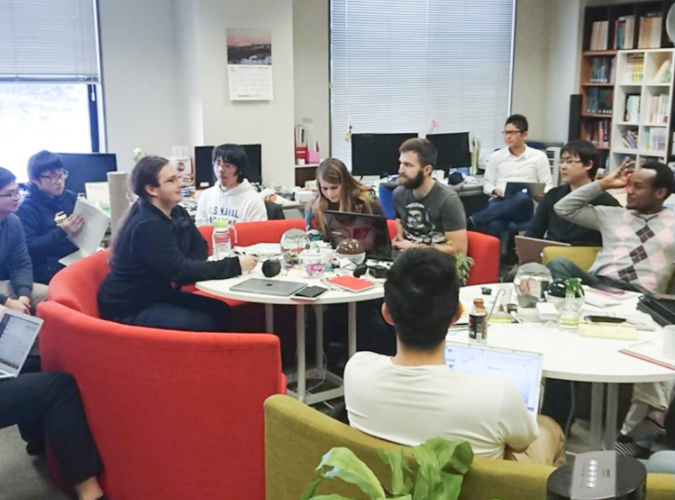

TiP Lab was established in 2009.
Natural Language Processing
Curling Informatics
Tourism Informatics
and Any Applied Knowledge Engineering
We have been conducting research in the four fields.
We have students of many different nationalities from Japan and abroad.
We are always working on ways to make it easier for you to understand what we are doing.
Our laboratories are always open to the public, so please feel free to visit, ask questions, or just drop in for a consultation.
LABORATORY

Now we live in an information society. To deal with various problems in such a society, we need to make full use of information science and technology.
In our laboratory, we are engaged in various research focusing on knowledge engineering such as natural language processing, curling informatics, tourism informatics, and so on.

LABORATORY

In the information society, we use information science to solve society’s problems.
To this end, we are engaged in various researches every day.

PROJECT
NATURAL LANGUAGE PROCESSING
We have been conducting research focusing on the “language” that people use everyday.
TOURISM INFORMATICS
By incorporating information technology (IT) into the act of tourism, we can disseminate and analyze tourism information.
We will continue to conduct research in order to enhance the quality of our products and services, and to revitalize local communities.
CURLING INFORMATICS
We aim to establish “curling informatics” for the purpose of next generation curling to win and to train athletes.
EDUCATIONAL TECHNOLOGY
Based on the ARCS motivation model, we aim to establish and implement a method to define and quantify the motivation to learn.
INTERNATIONAL
STUDENT
We have colleagues of various nationalities in our laboratory not only Japanese but also Polish, Turkish, Malaysian, Chinese, Finnish, Tanzanian, and so forth. So, participating to us is one of easy way to have research life in Japan and it is also the best situation to train own international communication skill.

INTERNATIONAL
STUDENT
We have colleagues of various nationalities in our laboratory. Students have come from Poland, Turkey, Malaysia, Japan and other countries. The list is diverse, ranging from Russia to China. The following is an explanation of the assignment process to this laboratory.





